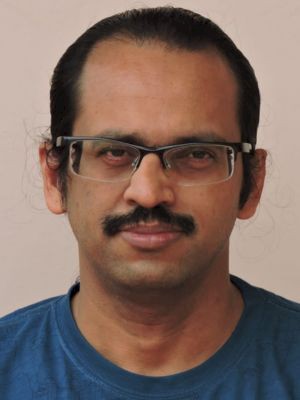Room 204, School of Arts and Sciences
Central Campus

Space science and technology share a very special bond with fundamental plasma physics. From the process of star formation to the evolution of planetary atmosphere, no scientific model is complete unless the effect of the plasmas is appropriately accounted for. In some cases, even the prebiotic molecules of life are produced by ionospheric plasmas. The other, more application specific, aspect of plasma physics plays crucial role in the planning and execution of space missions. At one end, spacecraft designers strive to develop mitigation strategies to protect their spacecraft from planetary and interplanetary plasmas. And on the other end, the plasma based electric thruster are occupying prime importance as the most efficient space propulsion technology. This revolutionary technology will lead to a paradigm shift in the methods and reach of humans in space exploration.
At IIST, three labs, namely, Atomic and Molecular Physics Lab, Electric Propulsion Diagnostics Lab, and Sensors and Payloads lab, have contributed to most of the aforementioned aspects of space science and technology. These labs are in strong collaboration with various ISRO centres and are contributing to the technology development of plasma propulsion, plasma diagnostics, and ionospheric studies of Earth and Venus. The seminar will cover the journey of these labs and their contribution to space science and technology via exploitation of fundamental plasma physics.
Professor Umesh Kadhane completed his BSc and MSc from Mumbai University. He did his PhD in the field of ion-molecule collisions from TIFR, Mumbai followed by more than three years of experience with ion-storage devices and mass spectrometry at the University of Aarhus, Denmark, and the University of Paris Sud, Orsay, France. He started his academic career as an assistant professor at the Dept. of Physics, IIT Madras in Dec. 2008. Two years later, he moved to the newly formed Indian Institute of Space Science and Technology, Trivandrum. For the last decade, he has worked towards developing in-house three major mass spectroscopy and electron spectrometry systems. He has guided or guiding several undergraduate and postgraduate students, as well as 12 PhD students (4 completed, 8 ongoing). Apart from academics, he is also involved in multiple space research-related activities. This includes substantial contributions to diagnostics systems, simulations, and overall system development of Electric Propulsion Systems (EPS) being developed by LPSC, Valiamala (ISRO) for the Indian space program.
Presently he is Associate Dean, Program Planning, Implementation and Infrastructure Development as well as deputy project director for the High Thrust EPS for LPSC. He is also a principal investigator for three major payload activities at IIST including the plasma measurement instrumentation payload around Earth, Mars, and Venus. IIST has accomplished two space missions under his leadership in the years 2019 and 2023. He has also set up two new laboratories at IIST for space research which include, the electric propulsion diagnostics laboratory (EPDL) and the Sensors and payload development laboratory for SPACE (SPDL-S). At the same time, he has established an internationally renowned Atomic Molecular Physics laboratory at IIST. He is an avid educator with a keen interest in disseminating scientific theory and ideas among the wider student community and the public.